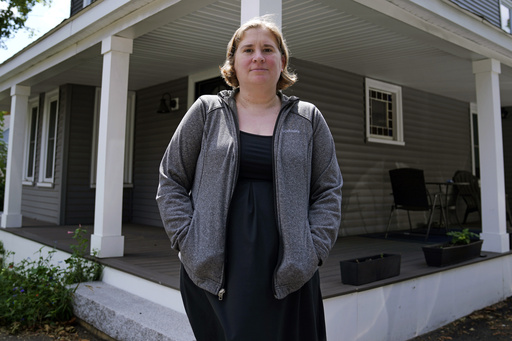Single mother Rebecca Wood, 45, found herself burdened with high medical bills in 2020 and discovered she was being charged a $2.49 “program fee” each time she added money to her daughter’s school lunch account. The Consumer Financial Protection Bureau’s recent report reveals that more schools are transitioning to cashless payment systems, leading to districts partnering with processing companies that impose fees ranging from $2.37 to 5% per transaction. Despite the legal requirement for schools to offer a fee-free option like cash or check, transparency regarding this option is often lacking.
Wood, who couldn’t afford to deposit large sums at once, felt the impact of the transaction fees on her finances, equating to the cost of a lunch meal. Families in similar situations find it challenging to navigate these fees, making it inconvenient and financially stressful. Joanna Roa, a 43-year-old library specialist from South Carolina, resorted to packing lunches for her son after facing a $3.25 fee per lunch account transaction, which was deemed excessive for their circumstances.
The burden of time and effort in preparing daily meals for her children became overwhelming for Roa and her husband, prompting them to opt for packed lunches. While some districts have introduced free school lunches, uncertainties exist around the sustainability of such programs. The CFPB’s analysis of the largest U.S. public school districts identifies that 87% contract with payment processors, resulting in additional costs for families, disproportionately affecting those with lower incomes who cannot afford bulk payments.
Wood took action by advocating for universal free school lunches in Massachusetts, recognizing the financial strain posed by processing fees on families. Despite companies claiming districts can negotiate fees, the CFPB’s findings suggest limited competition in the market, with dominance by a few key players. Families are left with few options to combat these practices, which could potentially violate consumer protection laws, as companies like MySchoolBucks and SchoolCafe maintain their stronghold on the industry.
Parents seeking solutions to mitigate these fees can exercise their right to pay by cash or check under federal policy. They can also urge their school districts to negotiate lower fees or cover them directly to leverage contract negotiations. Exploring eligibility for the Community Eligibility Provision in low-income areas may provide access to free meals for enrolled students, offering relief to families facing financial challenges due to school processing fees.


